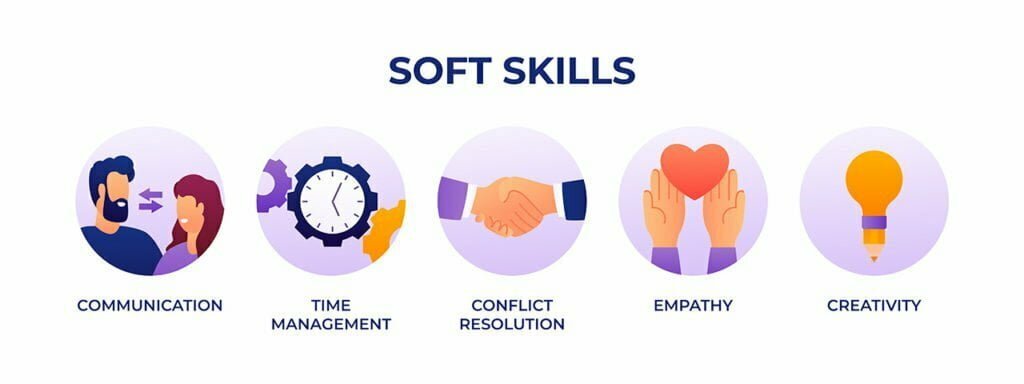Как развиваться в качестве лидера в IT-компании

В современном мире информационных технологий эффективное лидерство становится все более важным фактором для успеха компаний. Лидеры IT-компаний должны быть готовы к быстрому реагированию на изменения, инновации и проблемы, которые могут возникнуть в процессе работы.
В данной статье мы рассмотрим, как развиваться в качестве лидера в IT-компании, опираясь на советы от опытных руководителей.
Развитие лидерских качеств
I. Значение лидерства в IT-компаниях
Эффективное лидерство играет важную роль в достижении успеха организации. Хороший руководитель способен мотивировать свою команду, определить приоритеты и поставить цели, которые помогут организации развиваться и расти. Без сильного лида даже самая талантливая команда может столкнуться с трудностями в выполнении задач и достижении поставленных целей.
II. Особенности лидерства в IT-сфере
Лидерство в IT-отрасли имеет свои особенности, которые включают:
- Технические знания: Руководители в IT-компаниях должны обладать техническими знаниями и понимать основы работы своих команд.
- Гибкость: В быстро меняющемся мире технологий управленцы должны быть готовы адаптироваться к новым ситуациям и решать возникающие проблемы.
- Инновационный подход: Лидеры в IT-сфере должны быть открыты для инноваций и поощрять творчество своих сотрудников.
- Управление удаленными командами: В связи с распространением удаленной работы необходимо также эффективно управлять удаленными командами и сотрудниками.
Советы от опытных руководителей
I. Определение своего лидерского стиля
Опытные руководители советуют начать с определения своего лидерского стиля. Существует несколько основных стилей:
- Авторитарный: Лиды, использующие авторитарный стиль, принимают решения самостоятельно, опираясь на свой опыт и знания. Они контролируют работу команды, устанавливают строгие правила и требуют их исполнения. Этот стиль может быть неэффективным в компаниях, где сотрудники обладают высоким уровнем квалификации и желанием самостоятельно принимать решения.
- Демократический: Лидеры с демократическим стилем принимают решения совместно с командой, прислушиваясь к мнениям сотрудников и обсуждая возможные варианты действий. Они поощряют коммуникацию и сотрудничество внутри команды. Этот стиль эффективным в организациях, в которых необходимо сотрудничество и уважение к мнению каждого члена команды.
- Лассе-фер (невмешательство): Руководители с таким стилем предоставляют своей команде свободу в принятии решений и выборе способов работы. Они уверены в профессионализме своих сотрудников и предоставляют им возможность самостоятельно решать возникающие проблемы. Этот стиль может быть эффективным в IT-компаниях, где сотрудники обладают высоким уровнем квалификации и могут самостоятельно решать проблемы.
Важно определить свой лидерский стиль, чтобы понять свои сильные и слабые стороны и работать над их развитием.
II. Улучшение коммуникационных навыков
Софт-скиллы являются одним из ключевых аспектов эффективного лидерства. Опытные руководители советуют развивать следующие навыки:
- Активное слушание: Важно быть внимательным к мнениям и предложениям своих сотрудников, задавать уточняющие вопросы и проявлять интерес к их мыслям.
- Эффективное общение: Лидер должен быть способен четко и ясно выражать свои мысли и ожидания, чтобы избежать недопонимания и конфликтов в команде.
- Управление конфликтами: Необходимо уметь разрешать конфликты между сотрудниками и находить компромиссы, которые удовлетворят обе стороны.
III. Управление временем и приоритетами
Эффективное управление временем и определение приоритетов являются важными навыками для лидеров. Выделяют 3 основных навыка:
- Целеполагание: Определите краткосрочные и долгосрочные цели для своей команды и компании. Это поможет определить приоритеты и разработать стратегию для их достижения.
- Планирование: Разработайте план действий, который поможет вашей команде достичь поставленных целей. Учтите возможные риски и проблемы, которые могут возникнуть в процессе выполнения задач.
- Делегирование задач: Научитесь делегировать задачи своим сотрудникам, чтобы распределить рабочую нагрузку и использовать ресурсы команды наиболее эффективно.
IV. Развитие эмоционального интеллекта
Эмоциональный интеллект является важным аспектом эффективного лидерства. Рекомендуется развивать следующие компетенции:
- Самоосознание: Понимайте свои сильные и слабые стороны, а также свои эмоции и мотивы. Это поможет вам лучше управлять собой и своими действиями.
- Саморегуляция: Научитесь контролировать свои эмоции и реакции на стрессовые ситуации, чтобы оставаться спокойным и собранным даже в сложных обстоятельствах.
- Мотивация: Развивайте свою внутреннюю мотивацию, чтобы быть нацеленным на успех и достижение поставленных целей.
- Эмпатия: Стремитесь понять чувства и потребности своих сотрудников, чтобы поддерживать их и помогать им расти профессионально.
- Навыки межличностного общения: Это умение налаживать эффективное общение и взаимодействие с коллегами, сотрудниками и партнерами.
Обучение и саморазвитие
I. Менторство и наставничество
Найдите ментора или наставника в своей отрасли, который сможет помочь вам в развитии лидерских качеств и предоставит полезные советы и рекомендации.
II. Профессиональное развитие и обучение
Постоянно участвуйте в профессиональных тренингах, семинарах и курсах, которые помогут вам развивать свои навыки и знания в области лидерства и управления.
III. Участие в сетевых и профессиональных мероприятиях
Посещайте конференции, выставки и другие мероприятия, которые позволят вам обмениваться опытом и знаниями с коллегами и экспертами в вашей области.
IV. Чтение литературы и изучение случаев из практики
Регулярно читайте книги, статьи и исследования по теме, чтобы быть в курсе последних тенденций и разработок в этой области. Изучайте примеры успешных и неудачных практик лидерства, чтобы учиться на чужом опыте.
Преодоление препятствий и трудностей
I. Эффективная борьба с неожиданными проблемами и кризисами
Важно быть готовым к возникновению неожиданных проблем и кризисных ситуаций. Разрабатывайте планы действий на случай возникновения кризисов и обучайте свою команду принимать быстрые и эффективные решения.
II. Адаптация к изменениям и инновациям
Лидеры в IT-сфере должны быть готовы к постоянным изменениям и инновациям. Не бойтесь внедрять новые идеи и технологии в работу вашей компании, постоянно обучайте себя и свою команду.
III. Работа с разнообразными командами и индивидуальными характеристиками
Умение работать с разнообразными командами и учитывать индивидуальные особенности сотрудников является важным навыком для руководителя. Стремитесь создать инклюзивную и поддерживающую культуру в вашей команде, чтобы максимально использовать потенциал каждого сотрудника.
Заключение
Развитие лидерских качеств в IT-компании требует постоянной работы над собой и своими навыками. Используйте советы опытных руководителей, чтобы стать более эффективным и успешным руководителем. Не забывайте о важности обучения, саморазвития и адаптации к изменениям, чтобы быть готовым к вызовам современного мира технологий.
Список использованных источников:
- Goleman, D. (2004). Emotional intelligence: Why it can matter more than IQ. New York: Bantam Books.
- Kotter, J. P. (1996). Leading Change. Boston: Harvard Business School Press.
- Lencioni, P. (2002). The Five Dysfunctions of a Team: A Leadership Fable. San Francisco: Jossey-Bass.
- Northouse, P. G. (2018). Leadership: Theory and Practice. Thousand Oaks, CA: SAGE Publications.
- Drucker, P. F. (2001). The Essential Drucker: In One Volume the Best of Sixty Years of Peter Drucker's Essential Writings on Management. New York: HarperCollins Publishers.
- Kouzes, J. M., & Posner, B. Z. (2017). The Leadership Challenge: How to Make Extraordinary Things Happen in Organizations. Hoboken, NJ: John Wiley & Sons.
- Collins, J. (2001). Good to Great: Why Some Companies Make the Leap…and Others Don't. New York: HarperCollins Publishers.






Комментарии